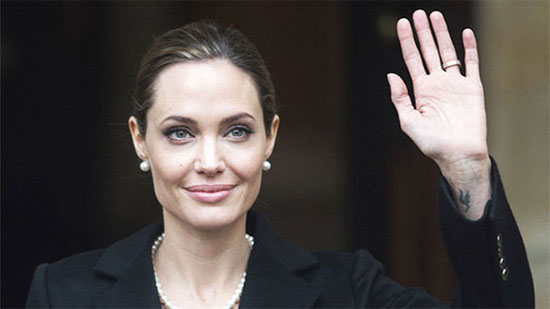The United States does not allow copyright to human genes
The US Supreme Court on June 13 ruled that companies could not have intellectual property rights with part of the random genes in humans, the decision that could have a fundamental effect on the gene industry, y. Emerging learning and biology promises a lot of profit.
The ruling with the absolute consensus of the Supreme Court overturned the executive party's decision three decades ago to authorize copyright with human genes. Now, genotypes like the model of actress Angelina Jolie, copyrighted by the company in Salt Lake City, Myriad Genetics, will have to be made public to the public.

Actor Angelina Jolie - (Photo: yahoo.com)
Judge Clarence Thomas, who wrote the Supreme Court ruling, said Myriad's argument that DNA was isolated from a body for breast and ovarian cancer tests could be copyright protected. valid, because it violates copyright laws. The Court said what was natural and vague ideas could not be copyright protected.
'We think random DNA is a product of nature and cannot hold copyright just because it is separate,' Thomas said. However, the court also said that while natural DNA cannot be protected by copyright, artificial and synthetic DNA can be copyright protected. The court said synthetic DNA, or DNA, is copyright protected because 'it is not a natural product'.
Copyright protection is a legal protection that gives inventors the right to prevent others from copying, using or selling devices, processes or applications they invented. The US Copyright and Trademark Office has granted copyright certificates to human genes for nearly 30 years, but those who oppose the copyright certificates of Myriad Genetics are not legal because the genes are linked to high risk. Breast cancer and ovarian cancer can be found in the human body.
The company uses this copyright certificate to conduct trials of 'BRC1 analysis' that searches the human body for genes at risk of the two cancers. Women with this gene are three to seven times more likely to develop breast cancer than normal people, as well as a higher risk of ovarian cancer than normal people.
Last month, actress Angelina Jolie revealed that her mother died of ovarian cancer and her grandmother also had it. She said she had the BRCA1 gene , which is at high risk for ovarian and breast cancer, and doctors recommended Jolie to remove the breasts to avoid the disease.
- Avian influenza vaccine is about to be circulated in the United States
- The relationship between retinitis pigmentosa in humans and cats
- The broad and serious impact of air pollution in the United States
- Detecting and controlling heroin addiction genes
- Tornadoes make dozens of casualties in the United States
- The mystery of immortal human body cells
- The unpredictable harm from Chinese scientists' genetic modification experiment
- Identifying human genes that respond to cosmetics
- Looking back at 10 years of publication of human gene map
- Isolation of genes increases height
- Wukong recognizes the benefits of decoding human genes
- Police can sketch suspects from DNA
 Vietnam 5th Asian champion on fuel-efficient vehicles
Vietnam 5th Asian champion on fuel-efficient vehicles We can read all NASA studies completely free of charge
We can read all NASA studies completely free of charge Singer and songwriter Bob Dylan won the 2016 Nobel Prize for Literature
Singer and songwriter Bob Dylan won the 2016 Nobel Prize for Literature Scientific revolution in Asia
Scientific revolution in Asia